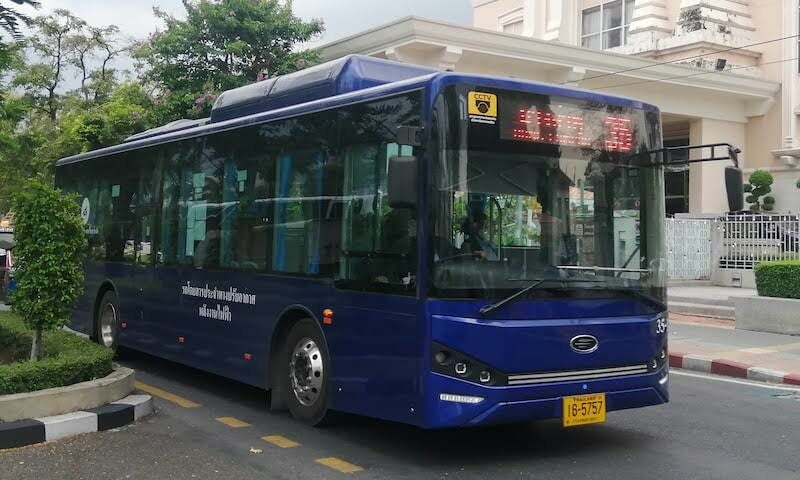Switzerland criticised: Thai electric buses would have been introduced without carbon offsets

Switzerland‘s purchase of carbon offsets from Thailand under the Paris Agreement‘s Article 6.2 mechanism has been criticised as the legitimacy of the emission reductions claimed comes under fire.
Switzerland has sealed the first-ever transaction under the Paris Agreement’s Article 6.2, acquiring carbon offsets from Thailand linked to the introduction of electric buses in Bangkok. Despite parties celebrating it as a pivotal climate action milestone, an umbrella group for Swiss charities is casting doubt.
The Swiss government intends to apply these credits towards its emissions reduction goals, but concerns linger regarding the necessity of the offsets. Critics argue that the shift to electric buses in Bangkok would have occurred independently, raising questions about the integrity of Switzerland’s emissions reduction strategy.
The controversy highlights the lack of centralised oversight for credits traded under the system, with an EU attempt to introduce tighter controls at COP28 failing. Switzerland, a proponent of bilateral credit trading under Article 6, remains actively engaged in such transactions.
The December deal forms part of a broader agreement between Switzerland and Thailand inked in early last year. While the credits are destined for government plans, the project is executed by private operators, with the South Pole, a Swiss company, coordinating the initiative.
Energy Absolute, a Thai renewable energy company, spearheads the project, converting petrol-fueled buses to electric vehicles. The funding comes from the Klik Foundation, representing Swiss fossil fuel importers. However, critics argue that economic justifications overlook the long-term benefits of direct investment from the Energy Absolute group.
Offset scheme
Alliance Sud disputes the additionality argument, claiming it is, at best, non-transparent and, at worst, non-existent. The research dossier questions the necessity of the offset scheme, citing evidence that electric buses were operational in Bangkok as early as 2021.
The Klik Foundation insists that the buses observed in 2021 were part of a pilot programme. Delia Berner of Alliance Sud criticises Switzerland’s approach.
“This project shows it is impossible to have a guarantee that these certificates can be a real substitute for domestic emission reductions.”
Despite the controversy, a spokesperson for the Swiss Federal Office of the Environment (FOEN) contends that only offsets generating additional emissions cuts would be approved. The FOEN and Thai authorities believe this is the case with the Bangkok e-bus project, reported Climate Home News.
Switzerland’s ambitious plans for bilateral exchanges persist, accounting for a third of its total emission reduction target by 2030. The nation moves forward despite uncertainty over the rules governing the mechanism, as talks over Article 6.2 collapsed at COP28.
Mischa Classen, an independent carbon market consultant, sees Switzerland’s transaction as positive momentum for countries interested in Article 6. He stresses the need for well-designed bilateral agreements, setting minimum standards and political efforts to establish carbon market regulations. The controversy surrounding Thailand’s case, according to Classen, showcases the possibility of navigating such challenges.
Latest Thailand News
Follow The Thaiger on Google News:


























